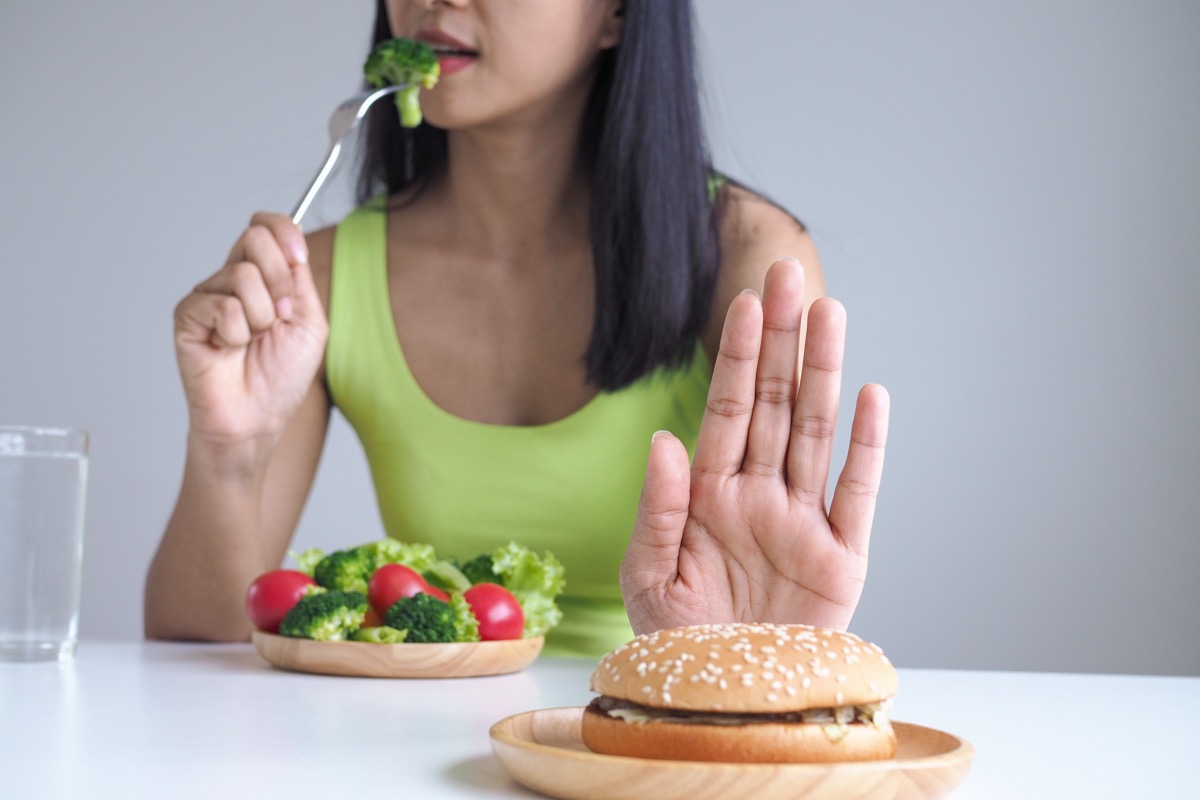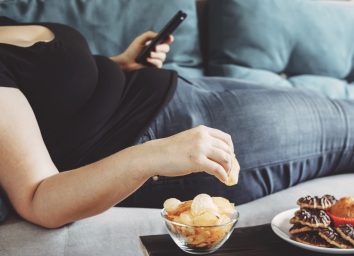5 Best Tips for Overcoming Food Guilt, According to a Top Dietitian

Psychologists say that guilt can be a healthy emotion. Guilt is a sign of maturity—that we are taking responsibility for our actions and decisions. But guilt can turn unhealthy when the guilty feelings become so painfully intense that they make us feel flawed and unworthy of love and compassion. And food guilt is a big culprit.
"Food guilt, too-much-alcohol guilt, no-exercise guilt; I'm seeing a lot of it during these months of pandemic stress, and it can be very emotionally destructive," says nutritionist Ilana Muhlstein, M.S., R.D.N., author of the bestselling book You Can Drop It!, which you can now get as an audiobook.
The most common type of daily guilt? Well, it may be feeling bad for eating the carrot cake instead of the actual carrots. One of the saddest things about food guilt, says Muhlstein, is that "it's a huge waste of time and can rob you of the joy of living. Beating yourself up for eating unhealthy can actually hurt your weight-loss effort."
So how can you best combat it? We asked Muhlstein for a five-step plan for overcoming food guilt that will help stop the unhealthy obsessions around food and fitness.
Realize that guilt is an energy crusher.

You can feel it sap your motivation and mood, so it's best to put things into perspective before these feelings take over.
"Fight guilt feelings before they become obsessive and spiral out of control by putting them in perspective," says Muhlstein. Ask yourself: Is overeating at a party or missing a workout something you are going to remember six months from now? Of course not. "Get over it and move on toward your goals," she says.
Be your own best friend.

Food is a big part of our social lives and as such there are lots of opportunities for temptation. If you overindulge occasionally, be realistic and forgiving. Recognize the first signs of feeling guilt or shame, and "be kind and compassionate to yourself, then recommit to what you really want," says Muhlstein. It doesn't mean you are a flawed person, but that you're human. (And if you're looking for more help staying on track, your ultimate restaurant and supermarket survival guide is here!)
Face your feelings and explore them.

"Food distracts you from facing your feelings," says Muhlstein. "Look, this year hasn't been easy. Our feelings of stress are real and raw and need to be felt and shared. Be kind and gentle with yourself and seek someone to talk to when you need to. The sugary cookies are not going to help you. Deal with your feelings in a positive way and you'll come out stronger and more emotionally adaptable."
Avoid impatience.

Feelings of guilt can grow when the expectations you set for yourself are too high. Are you beating yourself up for not losing weight quickly enough? It happens but what you can do instead is set realistic short-term goals.
"I always said, 'Ilana, just go two pounds at a time,'" says Muhlstein. "If I was 187, I would set 185 as my goal. When I was 168, I was thinking about 166. You know, this is a big principle of my 2B Mindset program because I sincerely lost my 100 pounds two pounds at a time; that's what helped me get there."
Argue with yourself.

A lot of guilt comes from mistaken beliefs about yourself, your body, and your food. Make a list of those inaccurate beliefs, such as 'carbs make you fat,' 'I'll never lose this weight,' 'I'm not good at exercise.' Now, be realistic and bust those myths you keep telling yourself. They're not true.
"Pinpoint the habits, foods, and behaviors that have been leading to weight gain and bringing down your energy," says Muhlstein. "Focus on things you can control and celebrate each bit of progress. Tell yourself you are beautiful and strong today and every day, and you will drop it."








